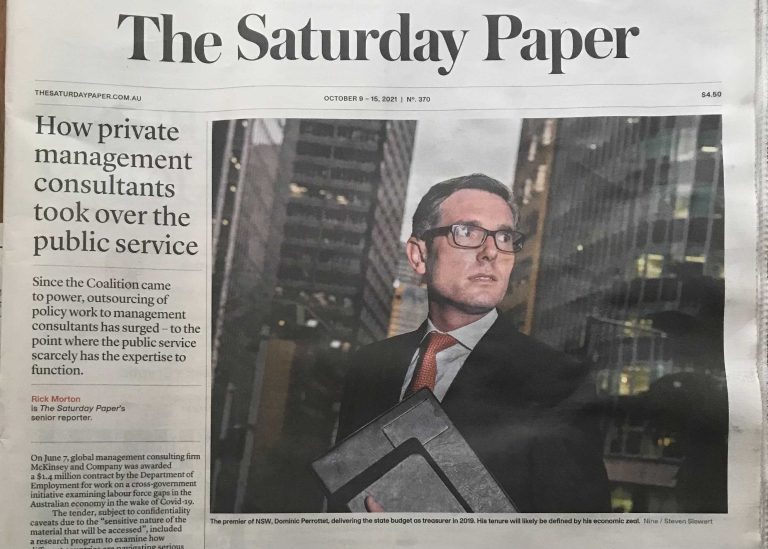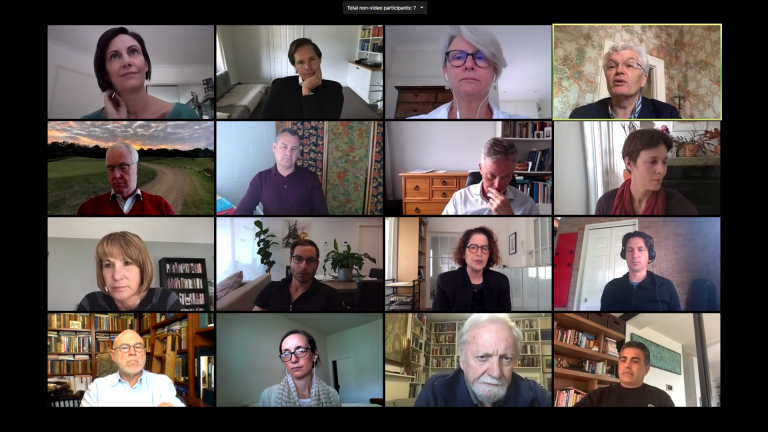Along with all the other 2020 Summiteers I was given homework to complete by yesterday afternoon. We had to answer two questions:
1. Provide a 100 word description of an idea that you think will make a difference to your stream topic (in my case ‘the future of Australian governance’.
2. Write 100 words on an issue on which you have changed your mind, and explain why.
I hope John Hartigan and Maxine McKew are more forgiving than my highschool teachers, because as usual I got enthusiastic and went over the word limit! Anyway, here’s my response. By no means my only change of mind, or the most important idea, but it’s a start. Feedback and additions welcome.
One idea: open access government
Wide-ranging reforms to the way that government owned or government-funded information is made available to the public, based on the following principles:
- For most kinds of government data, Freedom of Information requests should be a last resort – online publishing should increasingly become the default practice
- Restrictions on access to government owned or funded information should be based on a well-defined and limited set of exemptions, specified in a revised FOI act
- In general, taxpayers shouldn’t have to pay for the same information twice – circumstances in which cost-recovery charging will be imposed should be limited and well-defined
- These reforms should take in the ABC and SBS, Commonwealth-funded university research, and data held by government agencies and statutory bodies
Specifically:
- At a minimum, the OECD Principles and Guidelines on Access to Research Data from Public Funding should be incorporated into the ‘E-research Strategy and Information Framework’
- Investigation of strategies for making much more government data available to the public at low or no cost should be incorporated into the terms of reference of the ICT purchasing review recently announced by Lindsay Tanner
- The ABC and SBS should be funded to make their FOI requests available online. Funding should be allocated for a pilot of Radio National presenter Robyn William’s proposed ‘Babel Fish’ project. ABC and SBS content should be published under Creative Commons licenses, with appropriate conditions.
- Our FOI laws should be reformed to more closely resemble ARTICLE19’s Model Freedom of Information Law, especially the section on fees (i.e. that there should be no fees for public interest requests or requests for personal information, and that fees for other kinds of requests should be limited to cost recovery)
- The extent to which research results will be made freely available online should be added to the assessment criteria for ARC grants.
- Funding granted through the Higher Education Endowment Fund should be made conditional on the adoption of open access principles by the recipient organisations.
- In the absence of philanthropic funding for such a project, a one-off endowment should be made to a suitable organisation, for example the ANU’s Democratic Audit, to set up and maintain a website similar to the UK’s http://www.theyworkforyou.com/
Further information:
Berlin Declaration on Open Access to Knowledge in the Sciences and Humanities
Kate Lundy’s local pre-summit on open technology and digital knowledge(see also this write-up of the event, which noted that the Deputy Vice Chancellor of ANU, Professor Lawrence Cram, "warned that the Australian public is losing access to university research done in tandem with industry due to a legal framework which is failing to protect open access to information.")
An ambitious definition of open government data, which came out of a meeting of members of the Open Government Working Group.
Proceedings of the recent Open Access to Public Information Seminar hosted by the Office of Spatial Data Management
The Policy Framework for New Zealand Government-Held Information
A change of mind
I used to ascribe much of the short-termism of successive Australian governments to capture by vested interests or self-serving electioneering, and thought that if we could just get a more ethical mob elected, or strengthen our existing checks and balances, then that would be enough to get governments to tackle long-term problems like environmental deterioration or intergenerational poverty. Having realised that short-termism is also endemic in the business and non-government sectors, that it is a vulnerability of even the most public-spirited and accountable governments, and that behavioural economists have found a strong tendency for individuals to unreasonably ‘discount’ the future consequences of current actions, I’m now convinced that short-termism is pretty much a universal human trait. This has given me a strong interest in ways of institutionalising long-sightedness – in government but also in business and civil society.



